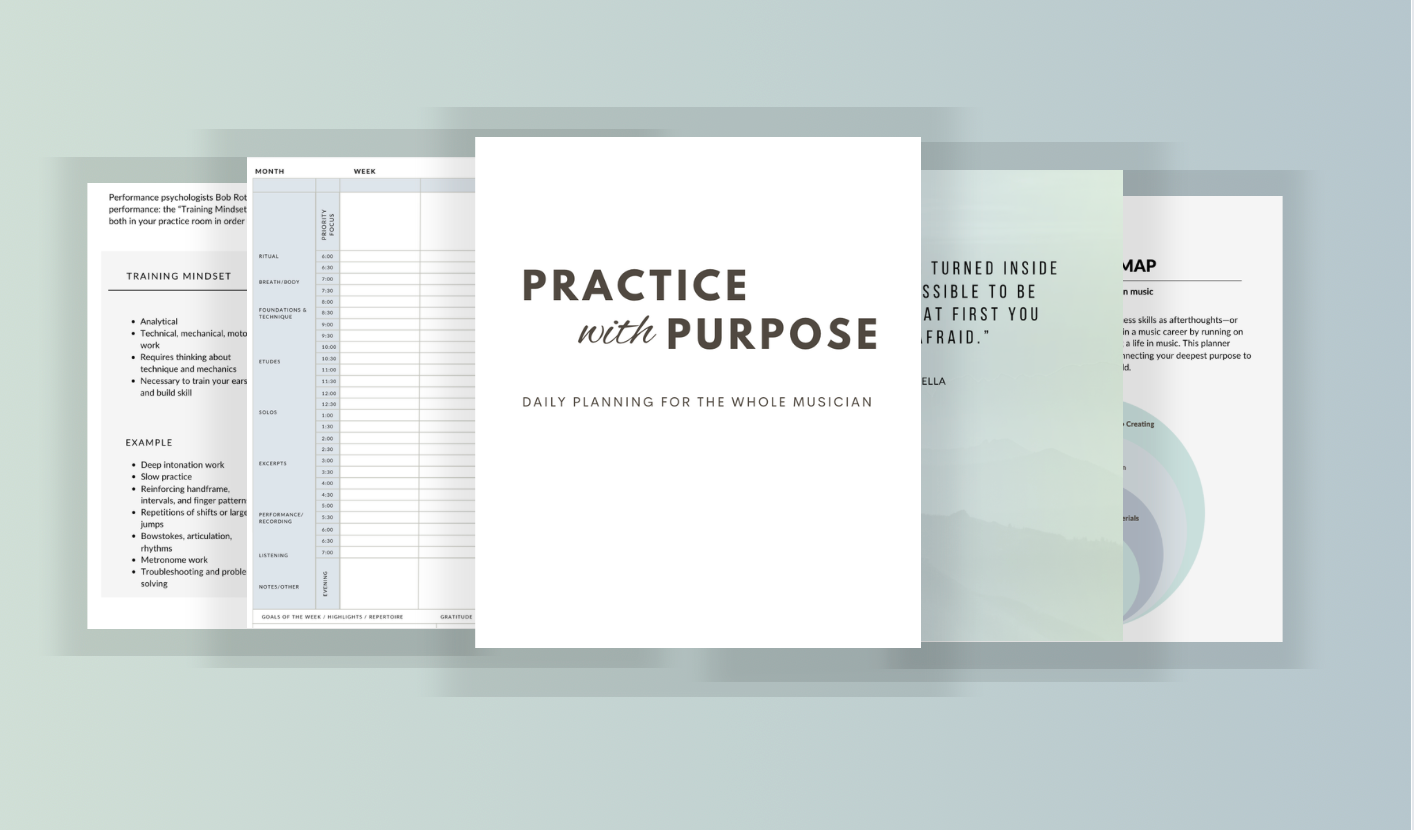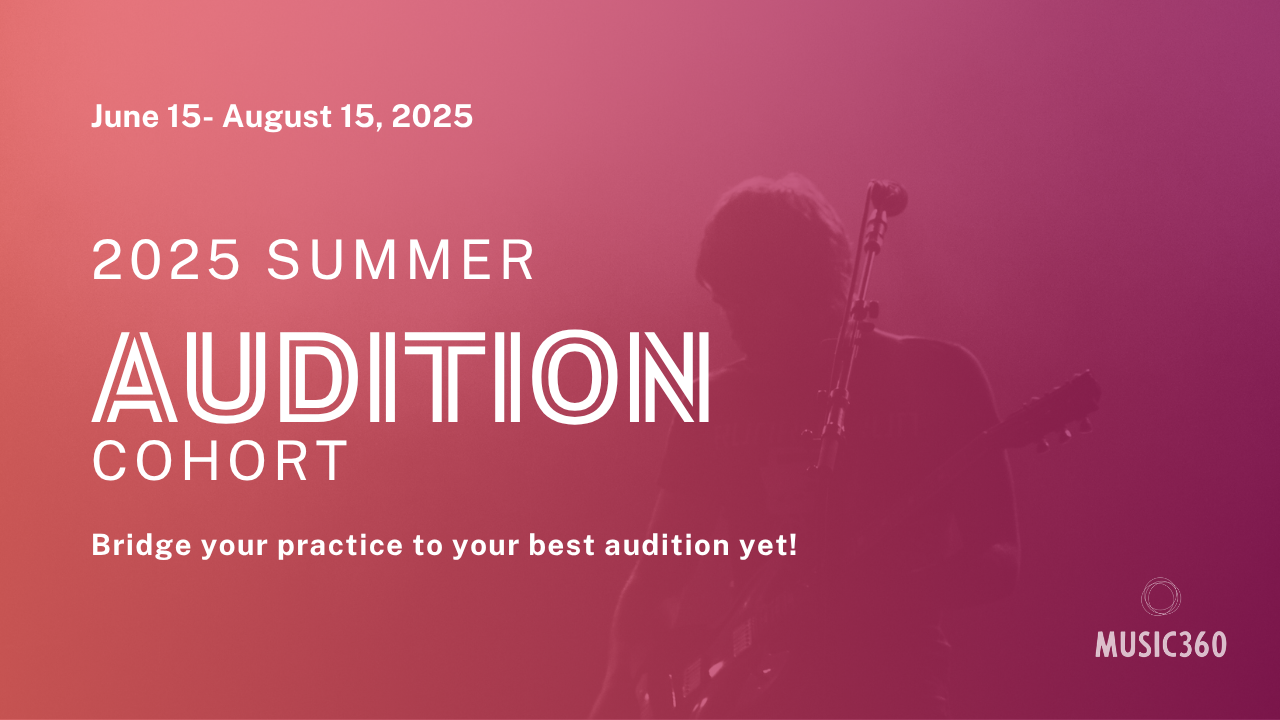Speaking from Stage

All of us have to do it at SOME point. So why is it so rarely taught or talked about in music school?
Maybe you've been there. You go through a couple of thoughts and think it will be okay... only to stand in front of the audience and go totally blank or feel like you make zero sense! Speaking from stage can be tricky—even though I’ve been doing it for a long time, sometimes I still worry about it MORE than whatever notes I have to play that evening!
But it doesn’t have to be that way—when done right, it can connect you to your audience and to the music you’re about to play, and set the scene like nothing else. Here are a couple of tips I’ve picked up over the years!
#1 WHERE
Position yourself well! Try to speak from the front of the stage. If you have a mic, consider where that needs to be and where it needs to be afterwards—do you need to turn it on/off each time? Is there a stand? Can you lay it on a towel next to your instrument?
#2 HOW
Speak louder and more slowly than you think you need to, even if you have a mic, and especially if you are prone to speaking fast or get nervous. Also try to eliminate fidgeting with your hands and feet. That said, also be natural—you’re talking to a group of friends, the people who came to see your show and support you! How do you want the audience to feel while and after you talk?
#3 WHAT AND WHY
What can you say to help listeners “enter” the music? That’s different for every piece, though focusing on the why (stories, anecdotes, etc.) can often be more successful than the what (facts+figures, dates, etc.—leave those for program notes if you can).
Maya Angelou said it best: “I've learned that people will forget what you said, people will forget what you did, but people will never forget how you made them feel.” How do you feel about what you’re going to play? What interests or excites you about your rep? And most importantly, how do you want your audience to feel about what you’re about to play?
#4 BE THANKFUL
The people in your audience took time out of their busy lives to spend it with you! This can sometimes get lost in the shuffle, but just thanking your audience for being there, especially at the beginning and end of the show, can set the right tone.
#5 PREP AND PRACTICE
Rather than have paragraphs I need to remember, I try to have no more than three “buckets” of things I am going to say. So at the start of a show that might be 1) thanks, 2) housekeeping (change to the program, where bathrooms are, reception after, etc.), 3) short story about first piece.
So I plan it out, might even write it out on an index card (I tend to think in bullet points), and then throw that out—it connects SO much more to an audience if you’re not reading from something. So even if you need to do that (for example, a long quote from a composer) try to limit the time you do that. And also, it’s just like your instrument: practice! Take a video of yourself speaking from the stage. What can you do better?
Hope these tips help you connect even better with your audiences!
Nick


